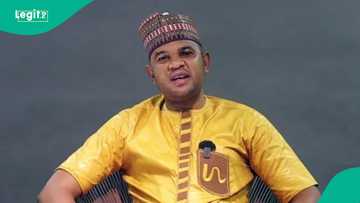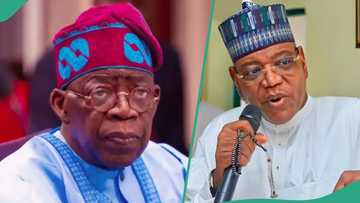Presidency Rejects Claims of Northern Neglect Following Kwankwaso’s Remarks
- Senator Rabiu Kwankwaso has accused the federal government of sidelining Northern Nigeria in its development agenda, claiming resource allocation is skewed towards the South
- In response, the Presidency strongly denied the allegations, citing a raft of major infrastructure, health, and agricultural projects currently underway in the region
- The rebuttal reignites debate over regional equity as Nigeria prepares for the 2025 constitutional review
Presidency officials have rejected allegations made by Senator Rabiu Kwankwaso, the 2023 presidential candidate of the New Nigeria Peoples Party, that President Bola Tinubu’s government has marginalised Northern Nigeria.
Speaking during a stakeholders’ dialogue on the 2025 constitutional amendment in Kano on Thursday, Kwankwaso expressed concern over what he described as a growing diversion of national resources towards the South.
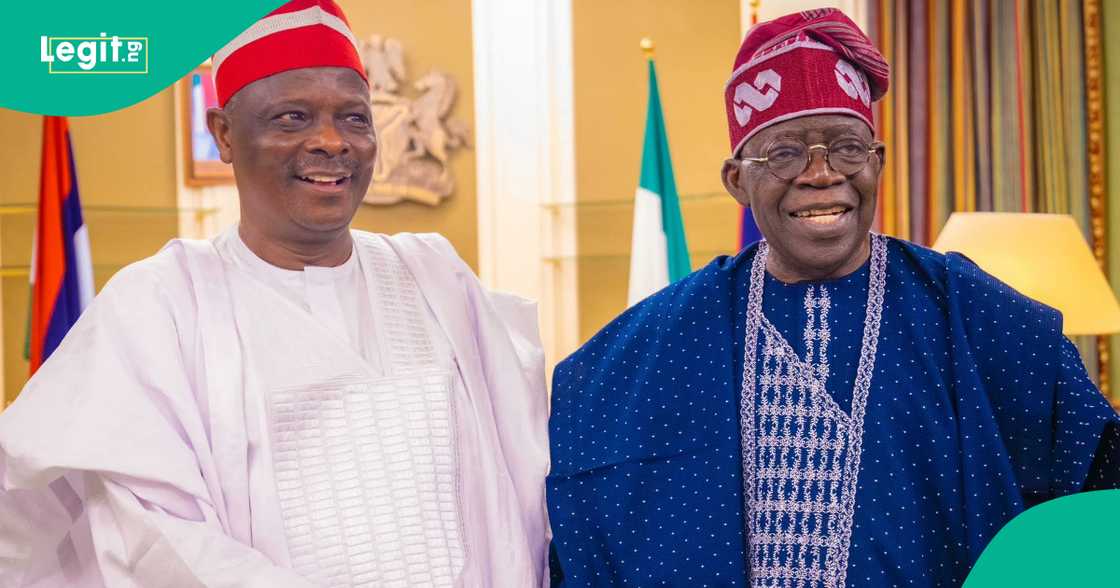
Source: Twitter
He warned that this imbalance was fuelling worsening poverty and insecurity in the northern region.
Kwankwaso also highlighted the dire state of federal roads in the North. He recalled being compelled to travel from Abuja to Kano by road through Kaduna after a flight cancellation, describing the experience as “hell” due to poor road conditions.
In response, Sunday Dare, Special Adviser to the President on Media and Public Communication, addressed Kwankwaso’s assertions in a post on his X handle on Friday.
He cited a number of critical infrastructure and social projects currently underway as evidence of the government’s commitment to balanced development.
Infrastructure projects listed included the Abuja–Kaduna–Kano Expressway, the Sokoto–Badagry Super Highway, the Kano–Kongolam Road, the Kaduna–Jos Road, the Kano–Maiduguri Dual Carriageway, and rehabilitation works in Borno and Adamawa.
In the energy sector, Dare referenced the 614 km Ajaokuta–Kaduna–Kano Gas Pipeline, the Gwagwalada Power Plant, and proposed solar power facilities in Kaduna. He also mentioned ongoing railway developments such as the Kaduna–Kano Rail Line, the Kano–Maradi Rail Line, and the Abuja Metro rehabilitation project.
On agriculture, Dare highlighted a $158.15 million Agriculture Value Chain programme in nine Northern states. He also pointed to the Kolmani Integrated Development Project in Bauchi and Gombe, and the Agro-Climatic Resilience in Semi-Arid Landscapes (ACReSAL) initiative aimed at restoring one million hectares of degraded land.
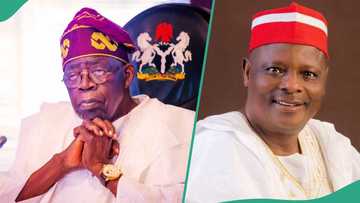
Read also
Breaking: “Tinubu’s govt neglects the north, develops southern Nigeria,” Kwankwaso alleges, video trends
The dispute over equitable regional development continues to draw attention as the nation prepares for the upcoming constitutional review in 2025.
About Kwankwaso
Rabiu Musa Kwankwaso is a prominent Nigerian politician and engineer born on 21 October 1956 in Madobi, Kano State.
He served as Governor of Kano State from 1999 to 2003 and again from 2011 to 2015, earning recognition for his investments in education and infrastructure. A former Minister of Defence under President Olusegun Obasanjo, Kwankwaso also represented Kano Central in the Senate from 2015 to 2019. He is the founder of the Kwankwasiyya Movement, known for its red cap symbol and grassroots appeal.
In 2023, he contested the presidential election under the New Nigeria Peoples Party (NNPP), securing 6.23% of the vote. Kwankwaso holds a master’s degree in water engineering from Loughborough University and a PhD from Sharda University in India.
His political career spans decades, marked by strong influence in northern Nigeria and a reputation for populist leadership. He remains a key figure in national discourse and opposition politics.
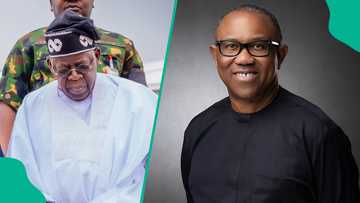
Read also
2027 election: New twist as Peter Obi told to allow Tinubu to complete 2nd term, "dire consequences"
Tinubu’s presidency
Bola Ahmed Tinubu assumed office as Nigeria’s 16th president on 29 May 2023, following his victory in the general election.
His administration launched a series of reforms aimed at stabilising the economy, including the removal of fuel subsidies and currency restructuring. Tinubu’s presidency has been marked by a focus on infrastructure development, regional equity, and food sovereignty, with initiatives such as the National Single Window project and agricultural investment schemes.
His leadership style blends progressive economic policies with assertive governance, and he has consistently emphasised national unity and grassroots engagement.
As he enters the latter half of his tenure, Tinubu remains a central figure in shaping Nigeria’s political and economic trajectory.
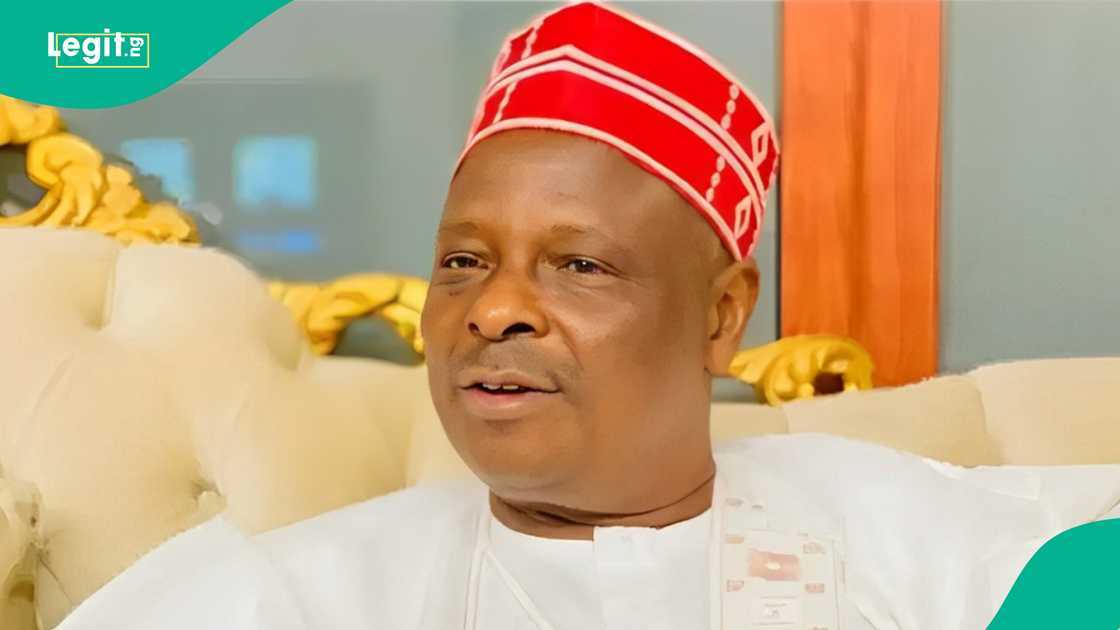
Source: Facebook
Thousands defect from APC to NNPP
Legit.ng earlier reported that a major political development unfolded in Kano as Rabiu Musa Kwankwaso, former governor and leader of the New Nigeria People’s Party (NNPP), announced that thousands of defectors from the All Progressives Congress (APC) had formally joined the NNPP.
Kwankwaso shared the news via his official handle on X (formerly Twitter), stating, “Yesterday was a momentous occasion, as I received thousands of defectors from the All Progressives Congress (APC) into the New Nigeria People’s Party (NNPP).”
Source: Legit.ng


